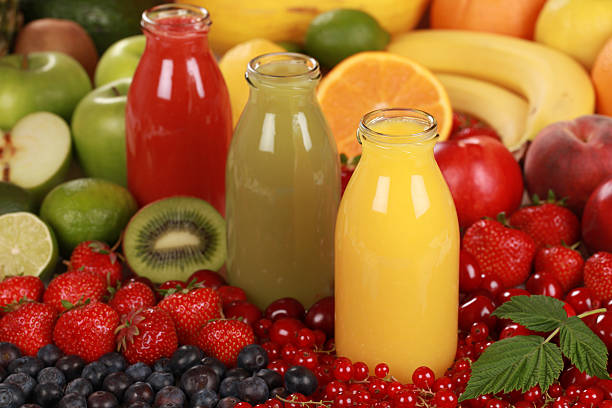The truth can be hard to discern from myth, but the final advice is simple: continue eating as normal with a few important but small exceptions.
Variety
The balanced pregnancy diet includes an increase in vitamins, minerals, and nutrients.
Try to do the following every day as a guide:
Four to six servings of cereals/bread, rice, pasta, and noodles (two slices of bread or one cup of rice/pasta/noodles cooked, half a cup muesli).
5 to 6 servings of vegetables and beans (one cup of salad or half a cup of cooked beans/lentils/vegetables);
Four servings of fruit (each serving equals one medium-sized fruit piece, one cup of canned fruits, and four dried apricots);
One-half serving of protein (cooked meats, nuts, and eggs are the best sources for pregnant women);
Calcium: 2 servings (250ml of milk, two cheese slices, or 200g of yogurt).
The majority of women do not need to increase the amount of carbohydrates, fats, or protein in their diet.
Vitamin supplements
The majority of women can get all the vitamins, minerals, and nutrients they need for pregnancy from their diet. The exception is folate, a B-group vitamin (also called folic acid).
In Australia, some breads, cereals, and fruit drinks contain folic acids, but many women don’t consume enough.
It is strongly suggested that supplementing folate before conception and during the first three months of pregnancy can prevent any abnormalities in the nervous system.
One month before conception and during the first 12 weeks after birth, it is recommended that you take 500 micrograms of folate daily.
A baby needs to get enough Omega 3 in order to help with the growth and development of their nervous system. Salmon, trout, and herring are all good sources of Omega 3.
Calcium is essential for the growth and development of a baby’s bones. Calcium-rich foods like hard cheese, milk, and yogurt should satisfy the needs of both mother and baby.
Most women will experience a normal decrease in Iron during the second trimester. A blood test usually detects this.
This drop in Iron can cause lethargy and dizziness, or even fainting. For a reduction in the symptoms, eat cooked lean red meat (the best iron source), green, leafy veggies, or cooked legumes like chickpeas.
Consuming vitamin C in natural products, such as orange juice, can increase iron absorption. However, caffeine and dairy products may interfere.
Consider taking a vitamin, mineral, or nutrient supplement if you are unable to meet the recommended daily intake. It’s best to consult your doctor before taking any supplements.
Heartburn
Heartburn occurs frequently during pregnancy, particularly in the last months when the baby’s weight is pressing against the stomach.
Use caution when using antacids to relieve heartburn. They can worsen reflux and cause more heartburn.
Dairy products are natural antacids that can ease heartburn.
Nausea
Early in pregnancy, nausea and vomiting can affect your appetite. Nausea will subside around the 12th week, but in the meantime, you can try ginger products or small bland snacks like crackers to curb your hunger.
Drinking to your thirst is important because dehydration can cause nausea and vomiting.
Avoid these things
Avoid processed meats and uncooked fish. Ham, salami, and sushi, as well as soft cheeses such as camembert, brie, and pate, cold barbequed chicken, and chilled peeled and ready-to-eat prawns, all contain bacteria that can be harmful during pregnancy.
Listeria is a bacteria that causes a serious illness in pregnant women. It can lead to miscarriage and premature birth.
Pre-packaged fruit salad, sprouts, and salads are also contaminated by bacteria such as Listeria and should be avoided.
You can safely prepare your sushi with cooked fish or eat barbequed fresh chicken while still hot.
Weight gain: healthy or unhealthy?
Pregnant women should enjoy freshly prepared, washed, and cooked foods.
It is not necessary to drink milk with full fat or “eat for two.” You can satisfy your hunger by eating more fruit, vegetables, and healthy snacks.
The recommended weight gain for pregnancy depends on the woman’s pre-pregnancy weight. Overweight and obese women only need a modest increase.
The majority of women with a Body Mass Index should gain 12 to 18 kilograms while pregnant.



